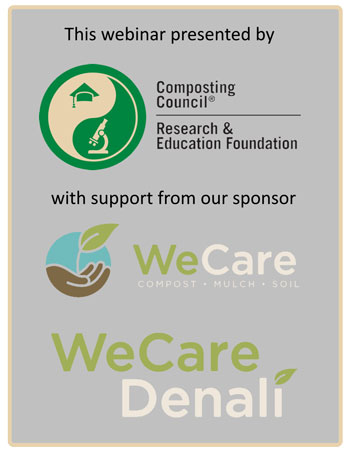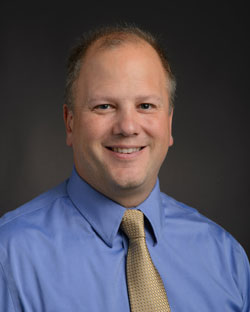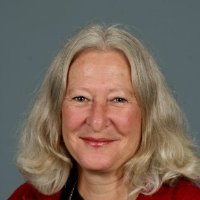Original Broadcast: December 9, 2020 2:00EST

The compost industry has met with resistance to the use of finished compost because of high electrical conductivity (EC) (ie. soluble salts) measurements. Soluble salts are perhaps the most misunderstood parameter in a compost test data report. Many specifiers assume all soluble salts are harmful to plant growth and that soluble salts in compost directly translates to negative plant response. This leads to compost specifications based on this assumption and results in overly narrow soluble salts ranges for compost use. What is not understood is that soluble salt (or EC) is a total number assigned to an entire category of charged elements found in compost and include parts of the NPK, micro and macro nutrients beneficial, even essential, to plant growth.
The purpose of the soluble salt literature review was to gather the available peer reviewed scientific research regarding the salt content of finished composts causing the high EC. The goal was to identify the specific types of salts and whether those salts are beneficial or harmful to plant growth.
During this webinar you will learn what a research team from the University of Wisconsin – Oshkosh discovered during their extensive look at available scientific research and hear about the next steps taken to get this work peer reviewed and published – making the information of greater value to the scientific community.
Webinar Speakers

Greg Kleinheinz
Sustainable Technology |
Greg Kleinheinz received his BS in Biology and Chemistry from Northern Michigan University and his Ph.D. from Michigan Tech University. He currently serves as the Viessmann Chair for Sustainable Technology, Director of the Environmental Research and Innovation Center, and Chair of the Department of Engineering Technology. Dr. Kleinheinz has worked on projects related to environmental contamination and beneficial reuse and remediation for over 20 years. This includes industrial waste treatment, water and wastewater issues, soil application of organics, renewable energy, and surface and stormwater. The Environmental Research and Innovation Center (ERIC) is a contract research and development facility at UW Oshkosh that partners with organization throughout North America. The ERIC has developed compost products and routinely tests materials for compost quality and compostability through ASTM and customized approaches. The ERIC is a US Composting Council STA certified laboratory. |
| |
|

Carmen Thiel
ERIC Lab |
Carmen Thiel is the Laboratory Manager for the ERIC Lab. She has been involved in compost testing since arriving at the ERIC in March of 2017. In addition, she has a BS degree in Water & Soil Resources from UW-Stevens Point and previously worked for a land conservation department on soil, water, and plant health issues, specifically with nutrient management. Her background working for a land conservation department as well as a crop consulting company demonstrates she is well versed in plant nutrition, soil, and compost management topics. |
| |
|

Ginny Black
Black Gold Recycling, LLC |
Ginny Black is the CCREF Trustee Chair and also the President of Black Gold Recycling, LLC. Ginny has been a Trustees since 2010. She also serves on Minnesota Composting Council (MNCC) Board of Directors. Ginny retired from the Minnesota Pollution Control Agency (MPCA) where she worked as a technical staff person assisting in setting up recycling and composting programs throughout the state. |
| |
|